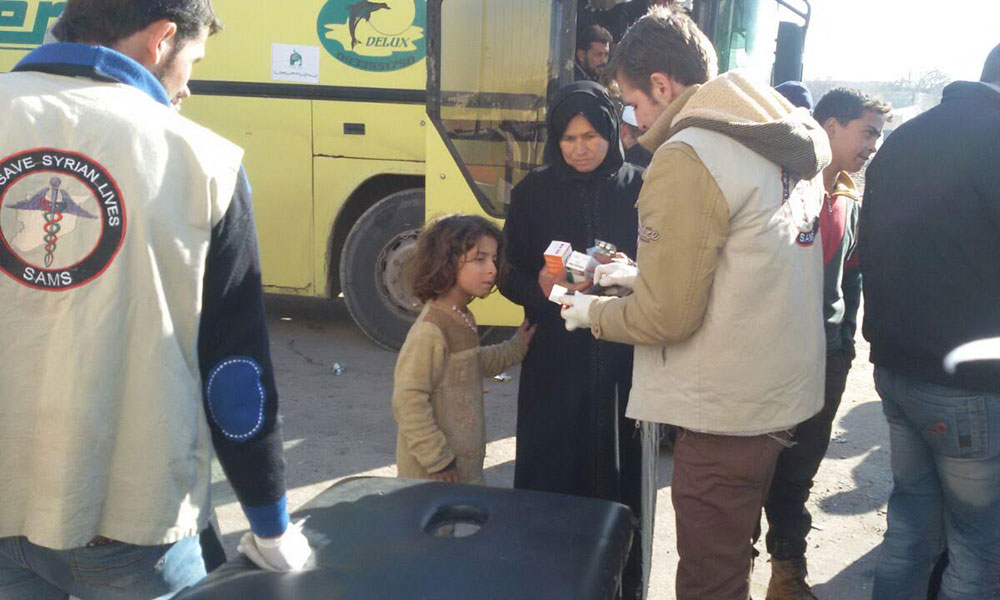
Medical Group Ramps Up Efforts in Syria Amid Crisis
In the face of violence and crisis, the Syrian American Medical Society continues to fulfill its mission of providing medical care, resources, and advocacy on behalf of the Syrian people.
Even through the Syrian government’s siege and subsequent takeover of eastern Aleppo and the latest collapsing peace talks and ceasefire, the Syrian American Medical Society persists in carrying out its mission of providing healthcare in the country and advocating for the protection of civilians and hospitals.
“I think we need to provide protection for civilians. We need to prevent any attacks on hospitals, schools, and marketplaces, and this is what has been the pattern,” SAMS Vice President Dr. Basel Termanini said.
The organization not only represents healthcare professionals of Syrian descent but also acts as a medical relief group, providing care to those in Syria by running hospitals, mobile clinics, ambulances, nursing and midwifing schools, and training programs. But to meet the needs of those who fled the December crisis in eastern Aleppo, SAMS has had to ramp up its efforts.
During the siege, SAMS hospitals—which provided about half of the medical care in eastern Aleppo—endured attacks and resource shortages; in fact, one underground facility was attacked 18 times in three weeks until it was entirely destroyed by a bunker buster bomb. Eventually all three SAMS facilities in Aleppo were destroyed by airstrikes and moved to makeshift basement clinics. One of these ran out of oxygen, yet continued to perform major surgeries.
While all 150 SAMS staff members were safely evacuated out of Aleppo during December, the group also aided the process on both sides. Staff took patients to the crossing points within Aleppo, then SAMS-sponsored ambulances transported those patients to hospitals in neighboring city Idlib as well as Turkey.
A SAMS health worker shown distributing supplies. (handout photo)“We had to expand on the services in Idlib and Aleppo that we had before,” Termanini said. “We had to provide extra cash to cover the cost of transportation, and we activated two mobile clinics to serve the medical needs of the displaced population.”
Following the evacuation, SAMS’ mobile clinics are serving various refugee camps, supported by its telemedicine program in which a U.S.-based doctor helps local medical personnel attend to patients. In coming weeks, SAMS, the largest of five medical groups working in the area, will build three new underground facilities around western Aleppo, establish full clinics in two camps at the Turkish border, reactivate specialty clinics in Idlib, and provide pay and jobs for medical professionals evacuated from Aleppo.
But its work is going beyond immediate medical care. SAMS is also working to prevent other medical conditions by providing mothers with baby formula, refugees with food and water, and hospitals with winterization kits and fuel for heating.
“We’re trying to at least provide fuel for our hospitals to keep our patients warm in those very tough times,” Termanini said. “And it’s not just SAMS facilities; we approved also supporting all healthcare facilities in Northern Syria. …The children were shivering inside the hospitals because there’s no heating.”
To further support efforts, SAMS is continually advocating for the protection of civilians, schools, and healthcare providers in Syria, and is raising money through its Aleppo Fund to pay for the increased medical care work.
A SAMS health worker offers medical care to a patient. (handout photo)






Comments